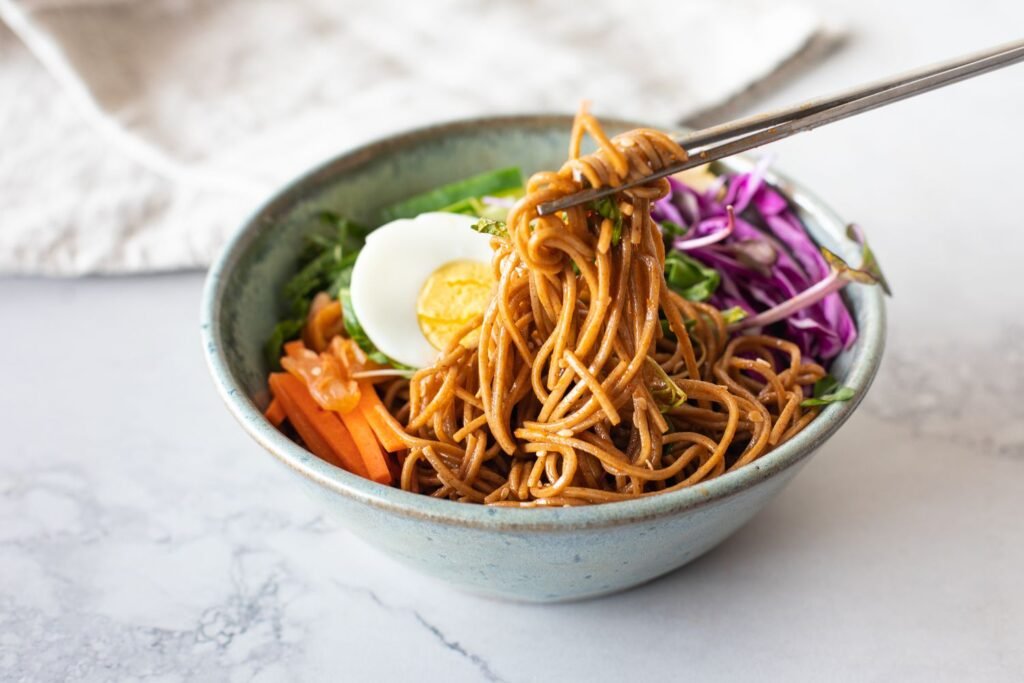Health experts have raised alarms over the increasing reliance on instant noodles among Kenyan households, particularly as busy parents turn to the quick-fix meals to manage evening routines.
Across many urban and peri-urban areas in Kenya, instant noodles have become a staple food, praised for their affordability, speed of preparation, and child-friendly taste. In numerous middle-class homes, they now sit on kitchen shelves alongside maize flour and rice.
For working parents—especially mothers juggling demanding careers with household responsibilities—noodles are often the go-to dinner solution.
“I get home at 7 p.m. By that time, the children are hungry, there’s homework to be done, and I’m exhausted. Noodles boil in three minutes. If I can, I throw in some vegetables or eggs, and then we eat,” said Mary Wambui, a mother of two from Nairobi’s Kasarani estate.
However, nutritionists warn that this growing dependence on ultra-processed foods could have long-term health implications for children.
“Instant noodles are ultra-processed. They are high in sodium and fats, and low in fibre, protein, and essential vitamins. If eaten regularly, especially by children, they can displace healthier foods and delay proper growth,” said paediatric nutritionist Eunice Lemein.
She added, “It is not a proper meal. It is not the kind of food a growing child should eat regularly. They are more suitable as an occasional snack.”
Health studies from around the world back these concerns. In South Korea, women who consumed instant noodles more than twice a week were found to be at higher risk of metabolic issues. In countries such as the Philippines and Indonesia, daily noodle consumption among children from low-income families has been linked to long-term health risks due to high sodium and fat content.
In 2015, India banned a popular noodle brand after tests revealed lead levels 17 times above safety limits. This move triggered temporary withdrawals in Kenya, Uganda, Tanzania, Rwanda, and even recalls in Canada. More recently, in June 2024, Denmark banned a brand of spicy noodles for posing acute poisoning risks, especially in children.
While Kenya has not officially banned any brands, the 2015 incident prompted local stores to temporarily remove the affected products. The brand has since returned to shelves, but nutritionists say the awareness it raised remains crucial.
Despite some manufacturers now fortifying noodles with vitamins or adding dehydrated vegetables, experts insist these do not replace the value of a balanced, home-cooked meal.
“When you consider the nutritional needs of a developing child, this simply isn’t adequate. It’s like providing them with empty calories,” Ms. Lemein said, warning that ingredients such as MSG can trigger headaches, allergies, or hyperactivity.
She added, “Adding eggs or vegetables does help, somewhat. You gain some protein and micronutrients. However, this doesn’t negate the fact that the noodles themselves are overly processed and contain additives. You are still consuming processed food.”
Parents have reported behavioural and digestive issues in children who frequently eat instant noodles, such as irritability, poor weight gain, and constipation. Ms. Lemein also noted a growing trend of children developing a strong preference for noodles and rejecting other foods, influenced by peers and advertising.
“Some children request them daily, influenced by their peers, advertising or social media, while others refuse to eat anything else, which can create feeding challenges and exhaust already stressed caregivers,” she said.
With Kenya’s labour landscape evolving, many mothers are now joint or primary breadwinners, leading to tighter schedules and fewer hours for traditional meal preparation. Even stay-at-home mothers admit to reaching for quick solutions as they manage emotional and mental childcare demands.
Ms. Lemein advised that quicker, more nutritious meals can be prepared at home. “You can make a simple ugali with eggs or mashed sweet potatoes with avocado in under 30 minutes. These options are affordable, filling, and nutrient-rich. Even oats or boiled eggs with fruit are better than fast food.”
She encouraged parents to involve children in meal preparation to help cultivate better eating habits and break the cycle of dependency on processed food.
Experts recommend limiting noodle intake to once a week or less and improving their nutritional value by including vegetables, eggs, or legumes.


